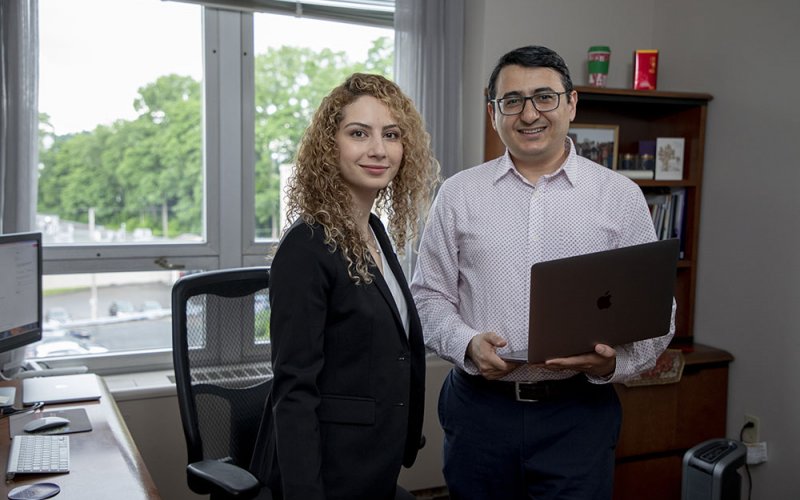Overcoming Procrastination . . . Now

ALBANY, N.Y. (June 27, 2019) — Online education is becoming increasingly available and trusted by both employers and students, with many workers turning to it to advance their education and job prospects. Online courses, however, require self-regulation, and that often invites an impediment to learning success — procrastination.
Detecting procrastination early in the online learner and exploring interventions to overcome it will be the work of assistant professors Reza Feyzi-Behnagh of Educational Theory & Practice and Shaghayegh Sahebi of Computer Science in their new National Science Foundation-supported ($750,000) project, “Cyberlearning: Detecting and Predicting Procrastination in Online and Social Learning,” which runs from Aug. 1 through July of 2022.
Feyzi-Behnagh and Sahebi will examine both individual and group procrastination behavior for students doing online course work. This form of learning, said Feyzi-Behnagh, the project’s principal investigator, demands effective time management skills, including planning and setting goals, managing time, and working alone or in groups within a less structured environment than an in-person course.
In accordance with his field in the School of Education, said Feyzi-Behnagh, “I will initially look at different current theories of procrastination and existing methods of collecting data on students’ procrastination in different learning environments. Subsequently, I will be examining and implementing different surveys, prompts, and scaffolds in the preliminary version of a mobile app developed by one of my doctoral students, Semih Bursali. This will enable capturing of key data to help us better understand the underpinnings of procrastination.”
Feyzi-Behnagh has worked on studying students’ self-regulated learning behavior using survey and “trace” data — students’ digital footprints as they work in technology-rich learning environments.
Co-Principal Investigator Sahebi of the College of Engineering and Applied Sciences will use her computer science expertise to find methods of modeling students’ procrastination behavior using machine learning models and computational algorithms. “These models can help us better understand students’ procrastination behavior, how it unfolds and how we can detect it early on. They will lead to understanding of what interventions we can implement and when we can provide them to remedy procrastination, given the negative outcomes it has on students’ learning outcomes,” she said.
Sahebi also will create computational models on how students procrastinate in the context of group work, how that differs from individual procrastination, and how it affects not only individual student’s learning outcomes but also their peers’.
“Procrastination in accomplishing learning tasks can lead to low self-efficacy, poor performance, and negative emotions such as guilt, shame, anxiety and stress,” said Feyzi-Behnagh. “Students who struggle with self-regulating their learning will be struggling in the online learning environments. Online environments lack certain scaffolds that exist in a face to face classroom, such as the teacher prompting students to reflect on a particular question or issue.”
The duo will set out to identify such learning strategies. Much of their efforts will be abetted by the creation of a mobile app that will help students set goals and sub-goals for their individual and group projects, establish deadlines, report their studying behaviors using a timer, see their progress toward goals, and fill out questionnaires about different facets of their self-regulated learning. The app, to be deployed in several UAlbany online graduate courses, will even include pop-ups to offer encouragement.
“Detecting students who are procrastinating early on and providing interventions, such as a motivating nudge, a reminder or a suggestion of an effective learning strategy, could make a critical difference in helping students accomplish their tasks on-time,” said Feyzi-Behnagh.




